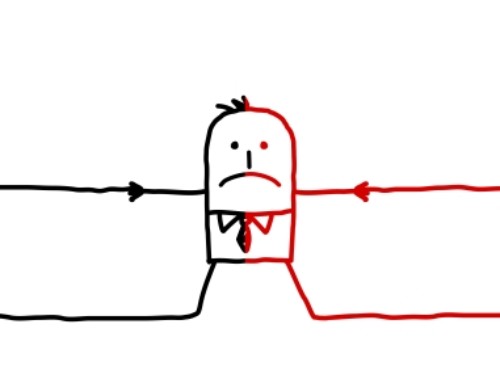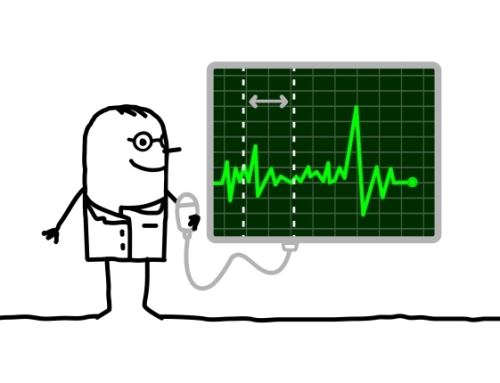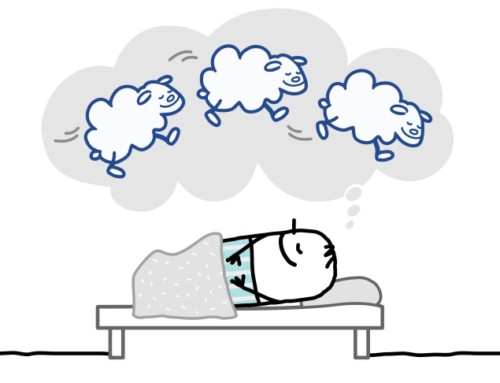In this article, I discuss the various components which combine to form an effective response when you are criticized.
One of the most challenging tasks we all face is responding to criticism. Like it or not, it is part of living that we are going to get criticized. This can happen at work, in our relationships, and in various activities in which we engage. Some of the criticism may be constructive—delivered in a respectful way—and other criticisms may be nonconstructive—communicated disrespectfully, often with negative labels, insults and even verbal or physical aggression.
Whether it is constructive or nonconstructive, criticism can be upsetting emotionally and result in negative effects on your self-esteem and your ability to perform effectively in various life situations. Fortunately, there are effective ways to respond to criticism which can lessen the negative emotional impact on you and allow you be resilient in the face of it. Armed with these effective ways of responding to criticism, you need not allow it to detract from your ability to perform well at work or school, in social interactions and in various other activities.
In my work as a Calgary psychologist and a Cochrane psychologist, I teach my clients that an effective response to criticism involves three elements: what to say, when to say it and what to think. In this article, I will focus on the first of these elements—what to say in order to respond to criticism effectively depending on whether the criticism is constructive or nonconstructive.
Two types of criticism: Constructive and nonconstructive
What to say, when to say it and what to think in response to criticism will often depend on whether the criticism is constructive or nonconstructive.
Constructive criticism occurs when someone brings something to your attention—such as pointing out a mistake you made—in a respectful manner without attacking you personally. The focus is on the specific behaviour or action rather than on a negative reference to your character.
Nonconstructive criticism occurs when someone brings something to your attention by making negative comments about you personally, often with negative character references (e.g., You’re so lazy). It may also include sweeping generalizations preceded by “You always…” or “You never…” Non-constructive criticism is more likely to result in you feeling attacked along with experiencing strong emotions and negative thoughts about yourself and the person who criticized you.

The first element of your response to criticism: What to say
There are several options regarding what to say, if anything, when you are criticized. Whether you say anything and what to say depends for the most part on the content of the criticism and whether it is constructive or nonconstructive. Although the dynamics of a particular situation will have a bearing on this, here are some general principles to follow in your verbal response to criticism:
(1) What to say when the criticism is constructive
If the criticism is constructive in its delivery and what is being brought to your attention is reasonable, acknowledging the validity of the criticism and taking responsibility to address the valid concerns often makes sense. An example is if you made a mistake at work and your supervisor brought it to your attention in a constructive manner.
If the criticism is constructively delivered but you believe some or all of its content is not supported by the evidence, your pointing this out in a constructive manner is a reasonable response.
(2) What to say when the criticism is nonconstructive
When the criticism is nonconstructive, what you say in response is more variable and often more complex compared to when the criticism is constructive. The reason is that when criticism is nonconstructive, there are potentially two elements which your response targets—the content of the criticism and the nonconstructive manner in which it was communicated.
In terms of responding to the content of the criticism: If there is some merit in the criticizer’s points despite the nonconstructive manner in which they brought the matter to your attention, it is reasonable to acknowledge this. As with constructively delivered criticism, if you believe some or all the points being raised are not supported by the evidence, your pointing this out in a constructive manner in response is reasonable.
As for responding to the nonconstructive manner in which the criticism was delivered, in many instances it is reasonable to point out that you do not appreciate being spoken to in such a manner if the circumstances warrant. Having said that, your ability to respond effectively either to constructive or nonconstructive criticism will often be enhanced by delaying your response. This will give you the chance to calm yourself from the emotional effects of nonconstructive criticism and to think through your response so you can deliver it in a clear, assertive and constructive manner.
(3) Saying nothing as an option in response to criticism
There may be times when the best response to criticism is no response. This is often the route taken by celebrities in news, entertainment, sports and politics. Frequent criticism—constructive and nonconstructive—comes with the territory when your job involves public performances. Responding to the many criticisms you face in these endeavours requires so much time and emotional energy that not responding in most instances is the reasonable course of action.
Many public performers go a step further by minimizing their exposure to criticism–typically by limiting the time they spend reading comments in traditional and social media. Given the negative emotional impact criticism can have, reducing your exposure to criticism in this manner is a strategy I would endorse. Even if you are not a celebrity, in our current times you may be susceptible to criticism on social media. Limiting your exposure to such criticism is one of many reasons I recommend social media use be rationed by individuals for themselves and by parents for their children.
In deciding whether to respond to criticism, a good rule of thumb is to determine whether responding is likely to lead to positive or negative consequences. For example, sometimes responding to constructive criticism is necessary to address legitimate concerns which have been raised while responding to nonconstructive criticism is often necessary to ‘set boundaries’ and deter further negative behaviour from the perpetrator. In instances in which people criticize to ‘get a rise’ out of others, not responding may be the way to go because it deprives the perpetrator of the reaction they are seeking, thereby leading to a decrease in the frequency of their criticism.
In my next article, I will discuss additional elements in responding effectively to criticism—when to respond and what to think.
May you respond to criticism effectively by focusing on what to say, when to say it and what to think,
-Dr. Pat






Leave A Comment